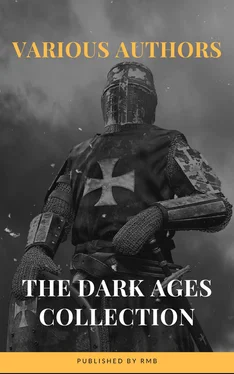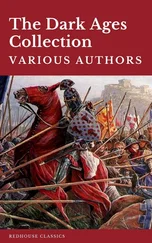Dioscorus was deposed by the Council, and was banished to Gangra. Feeling ran so high at Alexandria that the aid of soldiers was required to establish his successor Proterius.
In Egypt and Syria there was a solid mass of opinion loyal to the doctrine of one nature, and firmly opposed to the formula of Chalcedon. These Monophysites, as they were called, were far too numerous and earnest to be stamped out; they ultimately created the national Coptic Church of Egypt. Throughout the reign of Leo I the dispute over the meaning of the Incarnation led to scenes of the utmost violence in Alexandria and to occurrences hardly less scandalous in Antioch.
At Jerusalem the Monophysites obtained the upper hand after the Council of Chalcedon, and a reign of terror prevailed for some time. The episode derives interest from the association of the Empress Eudocia, who was living there in retirement, with the Monophysitic cause. 34A monk named Theodosius, who was a zealous supporter of Dioscorus, gained the ear of the people, and the bishop of Jerusalem, Juvenal, when he returned from the Council, was forced to flee for his life, because he refused to renounce the doctrine which he had subscribed. Theodosius was ordained bishop, and methods of the utmost violence were adopted to coerce those who refused to communicate with him. He was supported by Eudocia, who had been a devoted admirer of Cyril and was led to believe that Cyril’s doctrine was identical with that of Dioscorus and had been condemned at Chalcedon. The Emperor Marcian at length took strong measures; Theodosius fled to Mount Sinai, and Juvenal was restored to his see. 35Eudocia after some years began to feel doubts about her theology and she consulted the pillar saint, Simeon, who recommended her to seek the advice of Euthymius, abbot of the convent of Sahel, a few miles east of Jerusalem. An interview with the monk showed the Empress the error of her ways, and she died in the faith of Chalcedon.
The Christian religion, with its theology which opened such a wide field for differences of opinion, had introduced into the Empire dangerous discords which were a sore perplexity to the government. In some ways it augmented, in others it weakened, the power of the State to resist its external enemies. It cannot be maintained — as we have already seen — that it was one of the causes which contributed to the dismemberment of the Empire in the West by the Teutonic peoples; and subsequently, the religious communion, which was preserved throughout political separation, helped the Empire to recover some of the territory it had lost. In the East, bitter theological divisions, consequent on the Council of Chalcedon, 36facilitated the Saracen conquest of the provinces of Syria and Egypt, but afterwards, in the diminished Empire, the State religion formed a strong bond and fostered the growth of a national spirit which enabled the Imperial power to hold out for centuries against surrounding foes.
§ 2. The Controversy on Predestination, and the Growth of the Papal Power
The subtle questions on the nature of the Incarnation, which were so hotly disputed by the Greeks and Orientals, created little or no disturbance in western Europe. But in the early years of the fifth century the western provinces were agitated by a heresy of their own, on a subject which had more obviously practical bearings, but involved no less difficult theological metaphysics. The Pelagian controversy concerned free will and original sin. Pelagius, probably a Briton of Irish extraction, 37propagated the views that man possesses the power of choosing between good and evil, and that there is no sin where there is not a voluntary choice of evil; that sin is not inherited; that man can live, and some men actually have lived, sinless; and that unbaptized infants attain to eternal life. 38The controversy is memorable because these doctrines found their chief antagonist in Augustine and led him gradually to develop the predestinarian theories which had such a powerful influence on subsequent theology. He maintained that sin was transmitted to all men from Adam; that man, by the mere gift of free will, cannot choose aright without the constant operation of grace; that no man has ever lived a sinless life; that infants dying unbaptized are condemned, as a just punishment for the sin which they inherited. As time went on, Augustine developed his theory, which raised the whole question of the origin of evil into a system which, while it professed to admit the freedom of the will, really annulled it. God, he said, decided from eternity to save some members of the human race from the consequence of sin; he fixed the number of the saved, which can be neither increased nor diminished, and on these favoured few he bestows the gifts of grace which are necessary for their salvation. The rest perish eternally, if not through their own transgressions, through the effects of original sin. This is not unjust, because there is no reason why God should give grace to any man; by refusing to bestow it, he affirms the truth that none deserve it. Augustine allowed that in the eternal punishment which awaits all but the few there may be different degrees of pain.
Pelagius, along with his friend Caelestius whom he had converted to his views, went from Rome to Africa (A.D. 409). Leaving Caelestius there, he proceeded himself to Palestine. Caelestius stated his views before a council of African bishops at Carthage and was excommunicated (A.D. 412). Three years later a synod was held at Jerusalem, at which Pelagius was present, the question was discussed, and it was decided that it should be referred to Pope Innocent I (A.D. 415), but some months later another synod at Diospolis acquitted Pelagius of heterodoxy. In the meantime Augustine was writing on the subject, 39and the African bishops condemned the Pelagian doctrine and asked Innocent to express his approval. 40A decision on the matter devolved upon Innocent’s successor Zosimus, who was elected on March 17, A.D. 417, and the ear of this Pope was gained by Caelestius, who had come to Rome. Zosimus censured the African bishops for condemning Caelestius, and intimated that he would decide, if the accusers came and appeared before him. Then he received a letter from Pelagius, which convinced him that Pelagius was a perfectly orthodox Catholic. 41But the African bishops were not convinced, and in defiance of the Pope’s opinion, they condemned Pelagius and his teaching in a synod at Carthage (May 1, A.D. 418). Zosimus at last became aware that the doctrines of Pelagius were really heretical; he was obliged to execute a retreat, 42and he confirmed the findings of the African synod. Honorius issued a decree banishing Pelagius and Caelestius from Rome and inflicting the penalty of confiscation on their followers. 43Although the views of the British heretic were crushed by the arguments and authority of Augustine, they led to the formation of an influential school of opinion in Gaul 44which, though condemning Pelagianism, did not accept the extreme predestinarian doctrines of the great African divine.
In the list of Roman pontiffs the name of Zosimus is not one which the Catholic Church holds in high esteem. His brief pontificate fell at a critical period, when the Roman see was laying the foundations of the supremacy which it was destined to gain by astute policy, and propitious circumstances, over the churches of western Europe. Zosimus, through his rashness and indiscretion, did as much as could be done in two years to thwart the purposes which he was himself anxious to promote. In the matter of Pelagius he committed himself to a judgment which shows that he was either unpardonably ignorant of the doctrine which had been challenged, or that he considered orthodox in A.D. 417 what he condemned as heterodox in A.D. 418; and he exposed himself to a smart rebuff from the bishops of Africa. 45But his indiscretion in this affair was of less importance than the ill-considered policy on which he embarked on a question of administration in the Gallic Church, and which proved highly embarrassing to his successors.
Читать дальше












